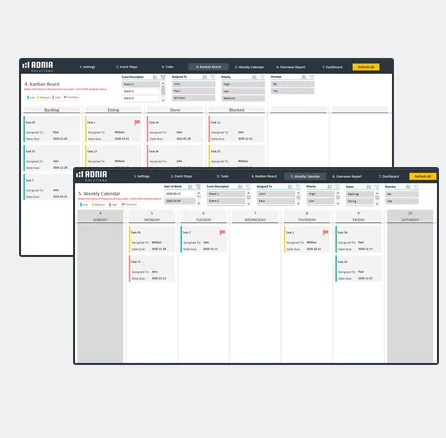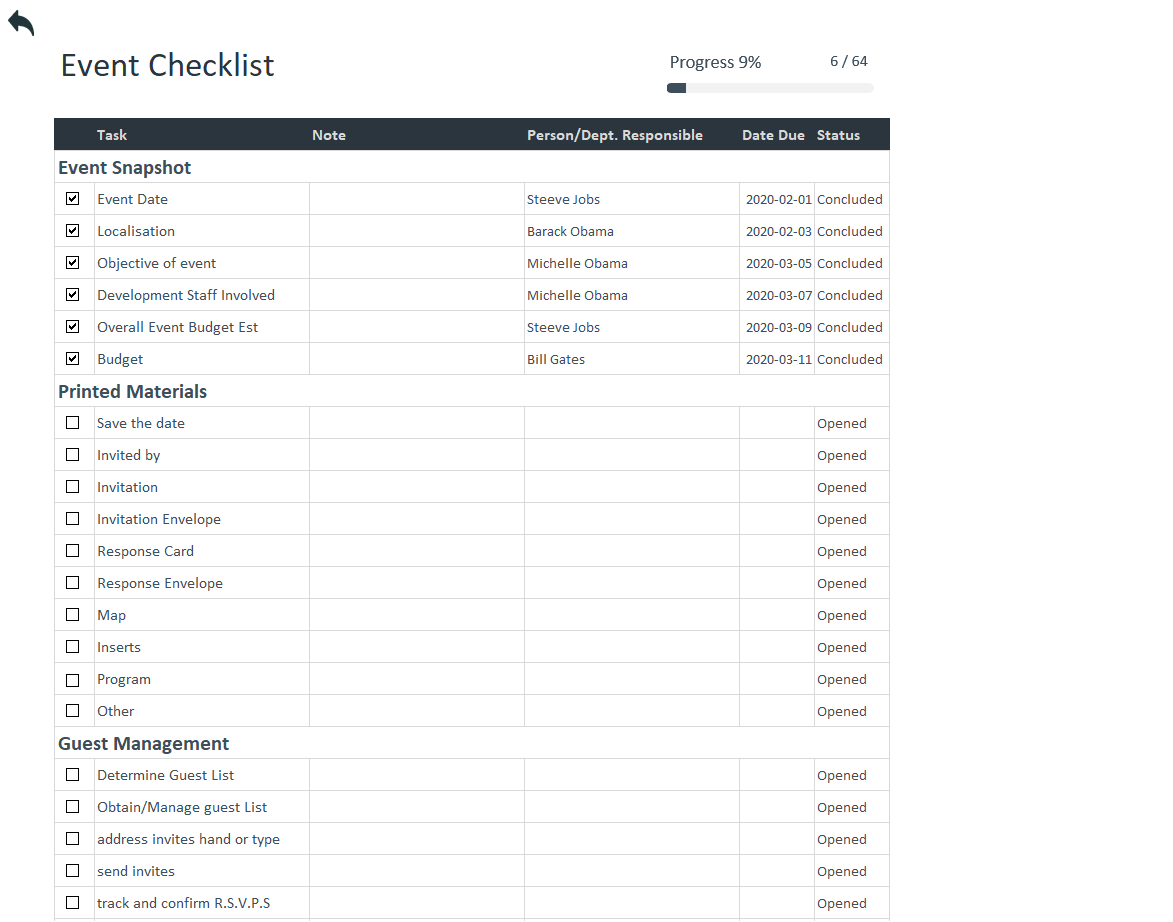
Use various channels like social media, email marketing, press releases, and partnerships. Develop a comprehensive marketing strategy to promote your event.Obtain multiple quotes, review contracts carefully, and communicate your requirements clearly to ensure their deliverables align with your expectations. Research and select reputable vendors and suppliers.Create a realistic and well-paced schedule that allows for each activity and considers attendee comfort. Plan a detailed event program that includes key activities, presentations, performances, and breaks.Create a visually appealing and engaging environment through decor, branding, lighting, and audiovisual elements. Develop a compelling and cohesive theme for your event.Consider location, capacity, accessibility, parking, and available amenities. Choose a venue that aligns with the event’s purpose and can accommodate the expected number of attendees comfortably.Avoid significant holidays or conflicting industry events that may impact attendance. Select a suitable date and time for the event, considering factors such as the availability of key participants, seasonality, and potential conflicts with other events.Track your expenses throughout the planning process to ensure you stay within budget. Establish a realistic budget that takes into account all the necessary expenses.Whether it is to educate, entertain, network, or raise funds, having a clear understanding of the event’s goals. Clearly define the purpose of the event and the specific objectives you want to achieve.Here are some key things to keep in mind:

When planning an event, several important factors must be considered to ensure its success. Things to Consider When Planning an Event Time and Resource Management: Event planning optimizes time, money, and resources by prioritizing tasks, allocating resources efficiently, and adhering to timelines.Professionalism and Attention to Detail: Event planners bring professionalism and expertise to ensure compliance, minimize risks, and execute events flawlessly.Enhanced Guest Experience: Event planners curate every element of an event to create exceptional guest experiences, from ambiance and decor to entertainment and catering.Seamless Execution and Logistics: Event planners expertly manage complex logistics, coordinating with vendors, securing venues, and ensuring a smooth experience for attendees.


They also handle catering, transportation, accommodations, decorations, entertainment, and event promotion.

Managing an event’s logistical details, including selecting a venue, creating a budget, coordinating with vendors and suppliers, arranging audiovisual equipment, managing guest lists, and ensuring all necessary permits and licenses are obtained, usually falls on event planners. In other words, event planning is the process of organizing and coordinating various aspects of an event, such as conferences, meetings, weddings, parties, and other social or corporate gatherings. It involves transforming ideas and visions into reality, focusing on every minute detail to ensure a flawless and captivating experience. What is Event Planning?Įvent planning is an intricate process that includes the entire lifecycle of an event, from conception to execution and evaluation. Things to Consider When Planning an Eventįirst, let us learn what event planning is and why it is so important in today’s context.You can edit them right away and kickstart your project. To make it even simpler for you, we have added templates as well.
#Event planner template excel how to
In this post, we will let you know how to plan an event the easy way. Bigger the event, the more detail you’ll have to look into when planning it, and more challenges you’ll have to overcome. Event organization could be a tedious task if you don’t have a proper plan.


 0 kommentar(er)
0 kommentar(er)
